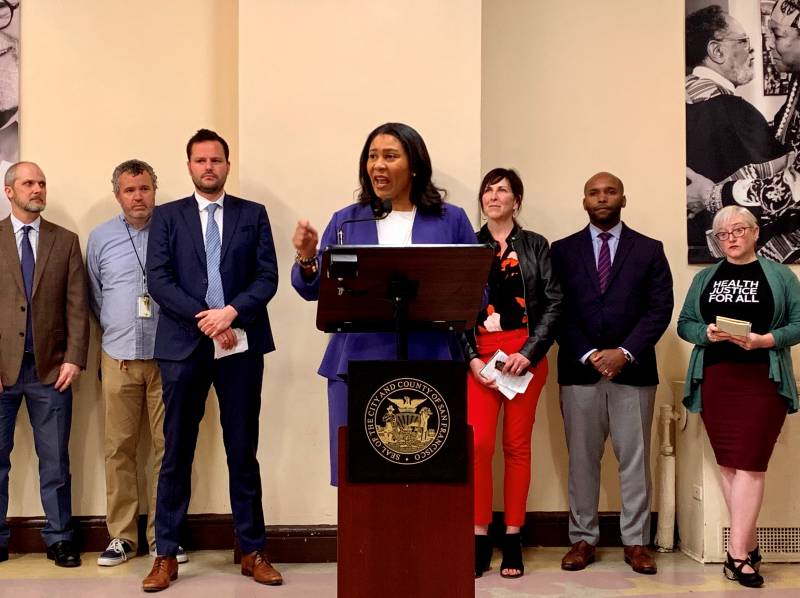Breed, who has long advocated for safe injection sites in the city, said she is “very clear” in understanding “the threat posed by the federal administration,” but still intends to move forward with the measure, which she formally introduced at a Board of Supervisors meeting Tuesday. Steps would be taken, she said, to shield city workers from any ramifications should the Trump administration pursue legal action.
“[This] is an opportunity to do something different that may make people uncomfortable but could actually turn things around for this city and for the people we’re trying to help,” Breed said during a press conference last Wednesday at Glide Memorial Church in the Tenderloin District.
But even if San Francisco passes the proposed measure, the city still can’t legally open any sites unless the state Legislature approves a separate bill — AB 362 — that would grant legal protection to facility operators. That measure is expected to be taken up later this year.
The city’s legislation comes amid a notable uptick in drug overdose deaths in San Francisco, with a 27% increase in 2019 over the previous year, according to the city’s Department of Public Health. Particularly alarming has been the spike in fatal heroin and fentanyl overdoses, which more than doubled — from 90 in 2018 to 234 last year, the San Francisco Chronicle reported, based on preliminary statistics from the city’s medical examiner’s office.
Roughly 24,500 people in San Francisco inject drugs, city officials estimate, many in public.
Multiple studies have shown the effectiveness of supervised injection sites in reducing fatal drug overdoses and the spread of injection-related diseases. There are currently at least 100 sites worldwide — mostly in Europe — but none within the United States, where the treatment approach remains highly controversial and has been staunchly opposed by the Trump administration. Still, San Francisco is among at least a dozen cities that have considered opening supervised injection sites to stem recent jumps in overdose deaths.

